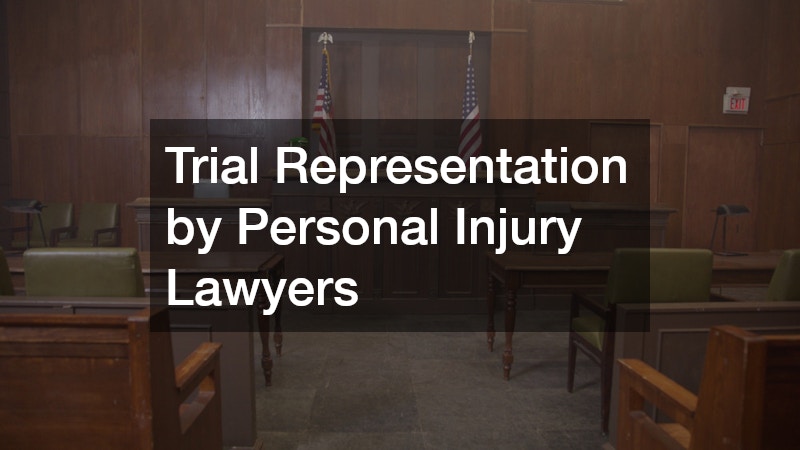
Disclaimer: This website shares legal information for educational purposes only and does not constitute legal advice. Please consult a licensed attorney for advice specific to your situation.
Introduction to Personal Injury Lawyers
A personal injury lawyer provides legal services to those who claim to have suffered injury, physically or psychologically. This specialized attorney is skilled in tort law, which includes civil wrongs and economic or non-economic damages to a person’s rights, reputation, or property. Individuals facing injury often seek the expertise of a personal injury lawyer to ensure they receive adequate compensation.
This professional acts as an advocate for clients, tailoring legal strategies to the specifics of the case. With the complexities of legal proceedings, a personal injury lawyer is invaluable in navigating the justice system effectively.
Hiring a personal injury lawyer can often lead to swifter and more favorable outcomes for clients. Experienced lawyers have the acumen to evaluate the merits of a case accurately, aiming for compensations that cover medical expenses, lost wages, and suffering. They gather pertinent evidence, such as medical records and witness statements, to bolster their clients’ claims. Collaborating with these professionals alleviates the stress associated with legal filings and courtroom proceedings. By entrusting a knowledgeable personal injury lawyer, clients are better equipped to concentrate on recovery and rehabilitation.
The Role of a Personal Injury Lawyer in Investigation
One of the primary responsibilities of a personal injury lawyer is conducting a thorough investigation into the incident. This process involves gathering substantial evidence, including photographs of the accident scene, witness accounts, and police reports. Timely collection of this information can be crucial, as evidence may become less reliable over time. Additionally, they may work in close collaboration with expert witnesses, such as accident reconstruction specialists, to establish liability. Their investigative prowess aims to construct a reliable narrative that supports the victim’s case in court.
During an investigation, personal injury lawyers scrutinize every detail to uncover negligence or fault in an accident. An in-depth investigation not only reveals the facts but also rules out unfounded claims, which could otherwise compromise a case. Lawyers utilize their expertise to identify breach of duty and direct causation, fortifying the victim’s position. This meticulous approach often includes reviewing safety records or company policies that may have been violated. Ultimately, an exhaustive investigation serves as the foundation for developing a legal strategy that aims to secure the client’s interests.
How Personal Injury Lawyers Negotiate Settlements
Upon compiling evidence, a personal injury lawyer will embark on negotiations with the insurance companies involved. They possess strong negotiation skills born from years of experience dealing with insurance adjusters. Insurance companies often aim to minimize payout amounts, but a skilled lawyer pushes back, using evidence to assert the client’s rightful claims. The mediation process is critical, as most cases are resolved through settlements rather than court trials. Lawyers strive to secure an agreement that reflects the full scope of a client’s injuries and associated financial burdens.
Negotiations involve careful enumeration of losses incurred, right from medical expenses to compensations for pain and suffering. Personal injury lawyers adopt an assertive stance, refusing unfair proposals while maintaining professionalism. By maintaining comprehensive records and evidence, they enhance their bargaining power, making it challenging for insurance companies to refute claims. The art of negotiation often hinges on understanding the insurance company’s strategies, enabling lawyers to anticipate counter-arguments. This level of preparedness increases the likelihood of arriving at a satisfactory settlement without protracted litigation.
In cases where settlements are not viable, a personal injury lawyer is prepared to escalate the case to trial. However, well-negotiated settlements can spare clients the uncertainties and emotional strain of court proceedings. The lawyer’s guidance is essential throughout this process, helping clients make informed decisions about offers received. The focus always remains on achieving outcomes that meet or exceed clients’ expectations, ensuring justice is served for the injured party. Thorough preparation reinforces settlement negotiations, drawing on comprehensive, evidence-backed demands that underscore the legitimacy of client claims.
Trial Representation by Personal Injury Lawyers
When a personal injury claim proceeds to trial, having an experienced lawyer is crucial. During this phase, the personal injury lawyer’s role becomes more pronounced as they present the case before a judge or jury. They deliver opening statements, frame arguments, and cross-examine witnesses to showcase the evidence collected during investigations. This legal representation seeks to portray the severity of the injury and the defendant’s accountability. It requires a combination of legal expertise and persuasive communication, making a seasoned lawyer’s skills indispensable in the courtroom.
Preparing for trial involves rigorous organization of the legal materials and rehearsing strategies to predict the opposition’s tactics. Personal injury lawyers curate a comprehensive story of the incident, ensuring coherence in presenting facts and relevant laws. They may utilize visual aids and expert testimonies to solidify the case further, emphasizing details that bolster the client’s position. Engaging a jury emotionally and ethically remains a pivotal aspect, as sympathy may impact the final verdict. Through meticulous, evidence-focused arguments, they strive to maximize compensation awarded by the court.






